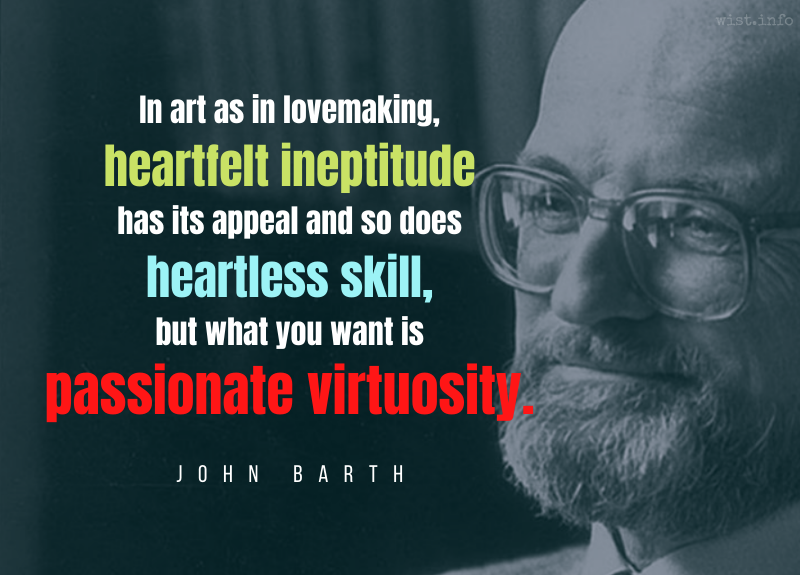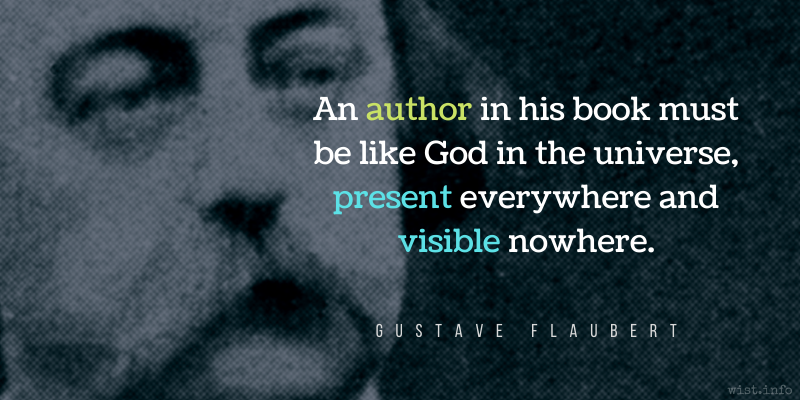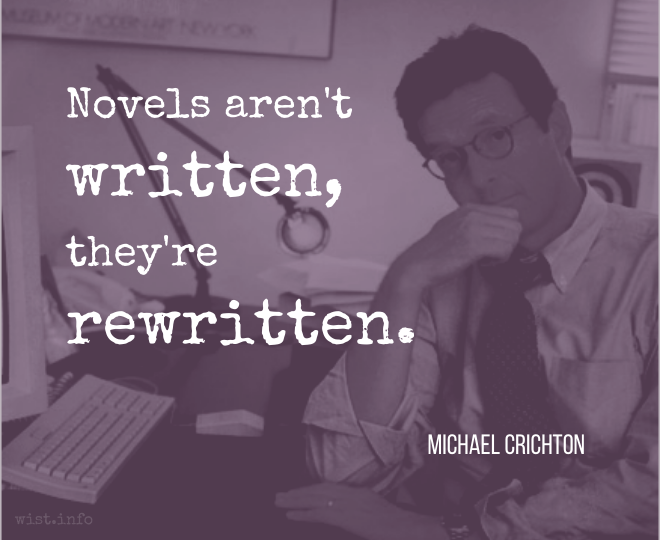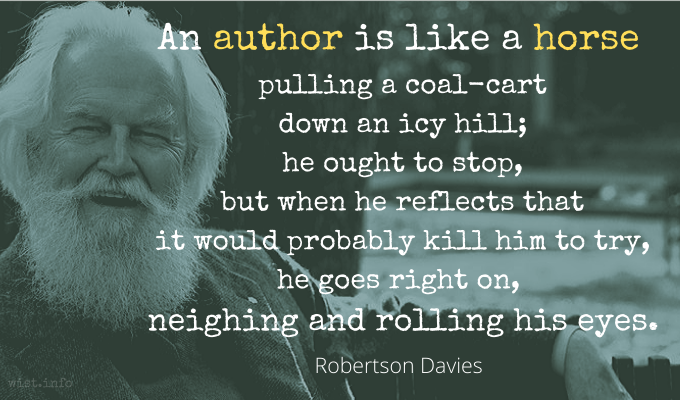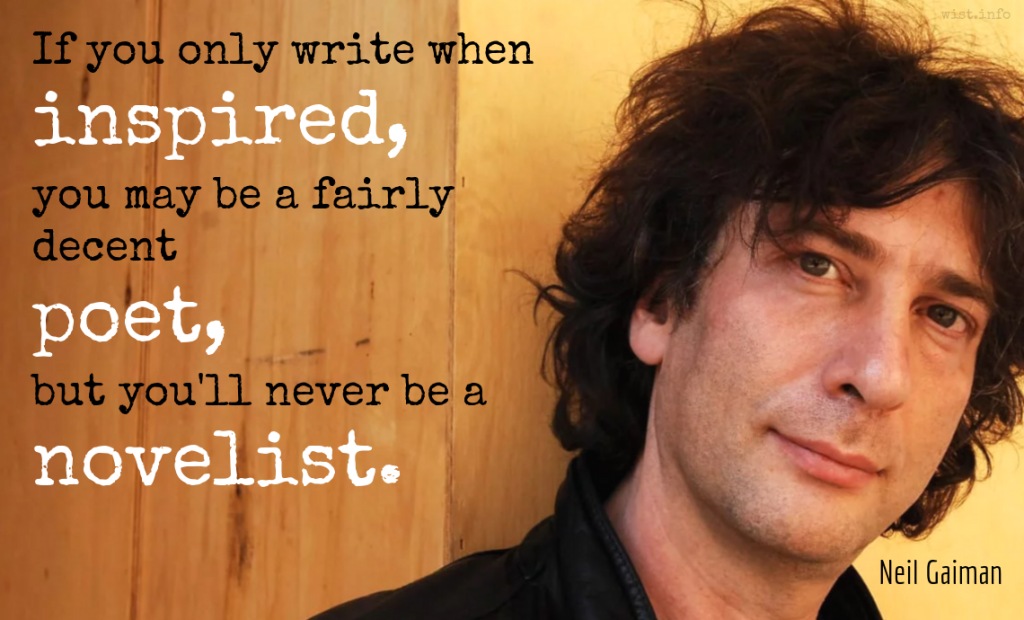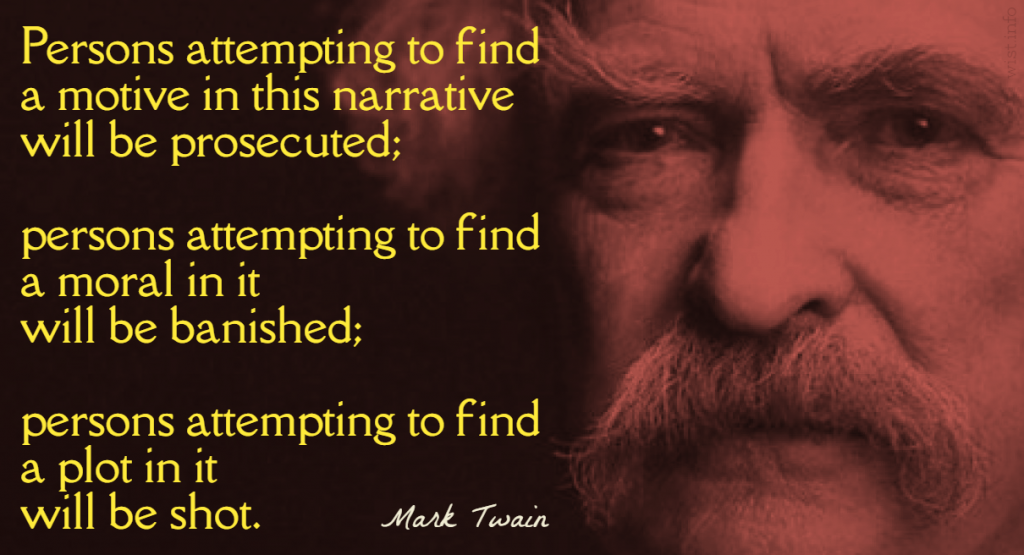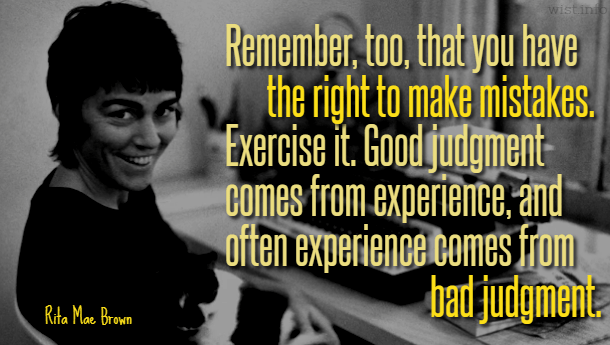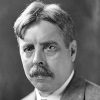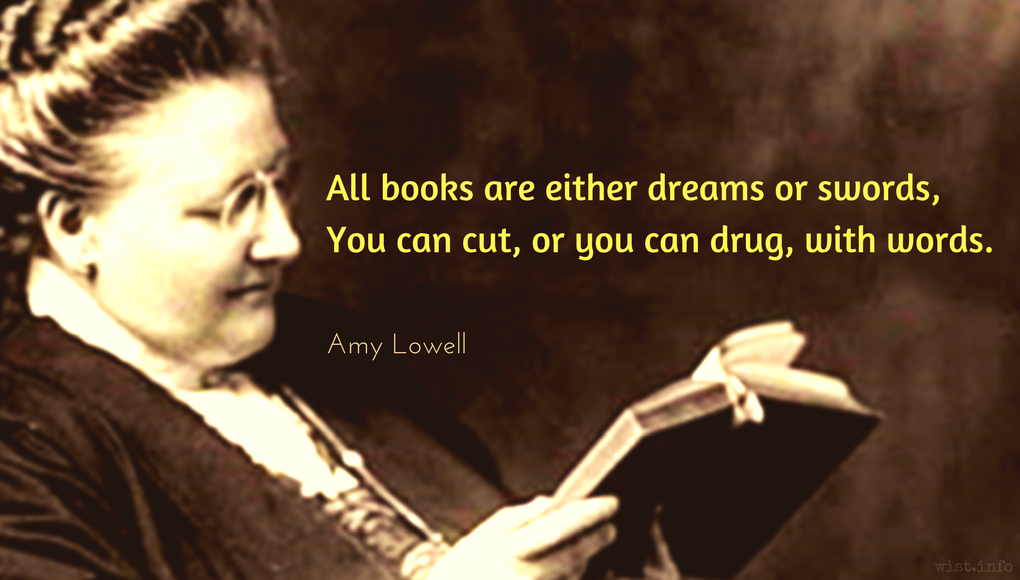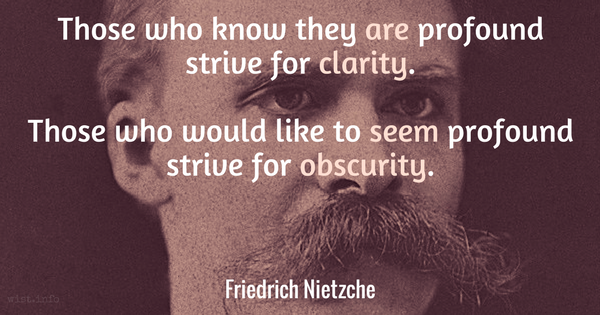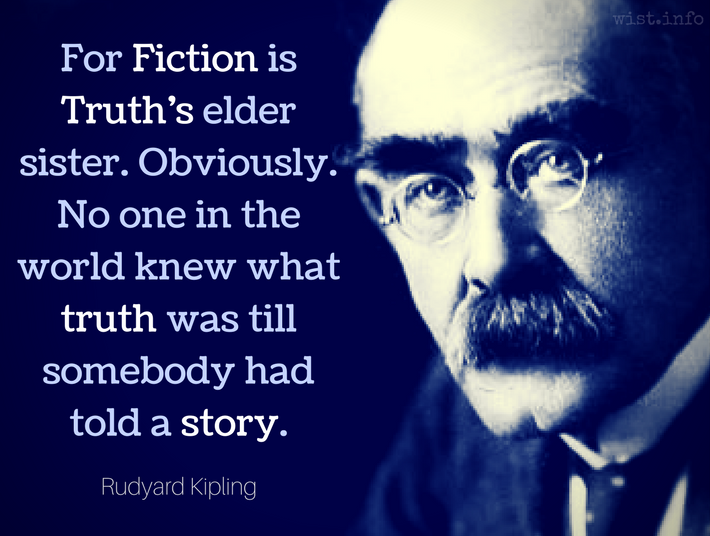My feeling about technique in art is that it has about the same value as technique in love-making. That is to say, on the one hand, heartfelt ineptitude has its appeal and, on the other hand, so does heartless skill; but what you want is passionate virtuosity.
John Barth (b. 1930) American writer
“An Interview with John Barth,” by Alan Prince and Ian Carruthers, Prism (Spring 1968)
(Source)
The quotation from the interview (originally credited only to Prince) was also included in the inside dust cover of Barth's short story collection, Lost in the Funhouse (1968), and is sometimes cited to that book.
The longer quote was paraphrased to the form in the graphic above on the dust cover of Charles B. Harris, Passionate Virtuosity: The Fiction of John Barth (1983):
In art as in lovemaking, heartfelt ineptitude has its appeal and so does heartless skill, but what you want is passionate virtuosity.
Harris later gives the full quotation inside his book.
Also used by Barth in "Dunyazadiad," Esquire (1972-07-01), reprinted in Chimera (1972):
Heartfelt ineptitude has its appeal, Dunyazade; so does heartless skill. But what you want is passionate virtuosity.
Quotations about:
writing
Note not all quotations have been tagged, so Search may find additional quotes on this topic.
Home is in every sentence of your writing.
Maya Angelou (1928-2014) American poet, memoirist, activist [b. Marguerite Ann Johnson]
“The Art of Fiction,” Paris Review, #116, Interview with George Plimpton (1990)
(Source)
I never saw an author in my life — saving perhaps one — that did not purr as audibly as a full-grown domestic cat on having his fur smoothed the right way by a skillful hand.
It isn’t easy for an author to remain a pleasant human being: both success and failure are usually of a crippling kind.
Graham Greene (1904-1991) English novelist [Henry Graham Greene]
“The Poker-Face,” The Spectator (15 Oct 1943)
(Source)
Reprinted in The Lost Childhood and Other Essays (1951).
I have found that a story leaves a deeper impression when it is impossible to tell which side the author is on.
In art as in politics we must deal with people as they are, not as we wish them to be. Only by working with the real can you get closer to the ideal.
Rita Mae Brown (b. 1944) American author, playwright
In Her Day, Preface, “A Note to the Feminist Reader” (1976)
(Source)
True art selects and paraphrases, but seldom gives a verbatim translation.
Thomas Bailey Aldrich (1836-1907) American writer, poet, critic, editor
“Leaves From a Notebook,” Ponkapog Papers (1903)
(Source)
Booksellers are the most valuable destination for the lonely, given the number of books that were written because authors couldn’t find anyone to talk to.
Alain de Botton (b. 1969) Swiss-British author
The Consolations of Philosophy, ch. 4 “Consolation for Inadequacy” (2000)
(Source)
An author in his book must be like God in the universe, present everywhere and visible nowhere.
Gustave Flaubert (1821-1880) French writer, novelist
Letter to Louise Colet (9 Dec 1852)
(Source)
In a later letter to Leoroyer de Chanepie (18 Mar 1857), he repeated the sentiment: "The artist must be in his work as God is in creation, invisible and all-powerful; one must sense him everywhere but never see him."
A deadline is negative inspiration. Still, it’s better than no inspiration at all.
Rita Mae Brown (b. 1944) American author, playwright
Starting from Scratch: A Different Kind of Writers’ Manual, Part 4 (1988)
(Source)
The art object is always passive in relation to its audience. It is alarmingly active, however, in relation to its creator. Far from being like a receptacle in which you, the artist, drop your ideas, and far from being like a lump of clay which you pummel until it fits your notion of an ashtray, the art object is more like an enthusiastic and ill-trained Labrador retriever which yanks you into traffic.
Annie Dillard (b. 1945) American author
Living by Fiction (1983)
(Source)
Often paraphrased, "Art is like an ill-trained Labrador retriever that drags you out into traffic."
I think the author who speaks about his own books is almost as bad as a mother who talks about her own children.
Benjamin Disraeli (1804-1881) English politician and author
Speech, Banquet to Lord Rector, University of Glasgow (19 Nov 1870)
(Source)
The dramatic art is particularly satisfying for any writer with a polemical bent; and I am at heart a propagandist, a tremendous hater, a tiresome nag, complacently positive that there is no human problem which could not be solved if people would simply do as I advise.
Gore Vidal (1925-2012) American novelist, dramatist, critic
Visit to a Small Planet and Other Television Plays, Preface (1956)
(Source)
I’m not interested in writing short stories. Anything that doesn’t take years of your life and drive you to suicide hardly seems worth doing.
Cormac McCarthy (1933-2023) American novelist, playwright, screenwriter
“Hollywood’s Favorite Cowboy,” interview with John Jurgensen, The Wall Street Journal (20 Nov 2009)
(Source)
H.G. Wells said that history was a race between education and catastrophe, and it may be that the writer will add just sufficient impetus to education to enable it to outrace catastrophe. And if education wins by even the narrowest of margins, how much more can we ask for?
Novels aren’t written, they’re rewritten. It is one of the hardest things to accept, especially after the seventh rewrite hasn’t quite done it.
Michael Crichton (1942-2008) American author, producer, director, and screenwriter
(Attributed)
Crichton was quoted a number of times on the adage, which he in turn claimed was in more general use. However, he seems to have been key in popularizing it. See here for more discussion and specific citations.
The author is like the host at a party. It is his party, but he must not enjoy himself so much that he neglects his guests. His enjoyment is not so much his own as it is theirs.
Charles P. Curtis (1891-1959) American attorney, legal scholar, author [Charles Pelham Curtis, Jr.]
A Commonplace Book (1957)
(Source)
To Herbert Westbrook, without whose never-failing advice, help, and encouragement, this book would have been finished in half the time.
P. G. Wodehouse (1881-1975) Anglo-American humorist, playwright and lyricist [Pelham Grenville Wodehouse]
A Gentleman of Leisure, Dedication (1910)
(Source)
I’ve learned to write in the first-person singular while remembering always that my writing must speak to the first-person plural.
Maya Angelou (1928-2014) American poet, memoirist, activist [b. Marguerite Ann Johnson]
“The Art of Fiction,” Paris Review, #116, Interview with George Plimpton (1990)
(Source)
I really love language; it allows us to explain the pain and the glory, the nuances and the delicacies, of our existence. Most of all, it allows us to laugh. We need language.
A real writer learns from earlier writers the way a boy learns from an apple orchard — by stealing what he has a taste for and can carry off.
Archibald MacLeish (1892–1982) American poet, writer, statesman
In Charles Poore, “Mr. MacLeish and the Disenchantmentarians,” The New York Times (25 Jan 1968)
(Source)
I look at some of the great novelists, and I think the reason they are great is that they’re telling the truth. The fact is they’re using made-up names, made-up people, made-up places, and made-up times, but they’’re telling the truth about the human being — what we are capable of, what makes us lose, laugh, weep, fall down, and gnash our teeth and wring our hands and kill each other and love each other.
Maya Angelou (1928-2014) American poet, memoirist, activist [b. Marguerite Ann Johnson]
“The Art of Fiction,” Paris Review, #116, Interview with George Plimpton (1990)
(Source)
Persons attempting to find a motive in this narrative will be prosecuted; persons attempting to find a moral in it will be banished; persons attempting to find a plot in it will be shot.
— By Order of the AuthorMark Twain (1835-1910) American writer [pseud. of Samuel Clemens]
The Adventures of Huckleberry Finn, “Notice” (1884)
(Source)
Remember, too, that you have the right to make mistakes. Exercise it. Good judgment comes from experience, and often experience comes from bad judgment.
Rita Mae Brown (b. 1944) American author, playwright
Starting from Scratch, Part 4 (1988)
(Source)
Brown popularized the phrase, but it had been expressed before. More information: Good Judgment Depends Mostly on Experience and Experience Usually Comes from Poor Judgment – Quote Investigator.
Yet soft, my books, no haste, nor hurry fate;
If fame must wait on death, then let it wait.[Vos tamen o nostri ne festinate libelli:
Si post fata venit gloria, non propero.]Martial (AD c.39-c.103) Spanish Roman poet, satirist, epigrammatist [Marcus Valerius Martialis]
Epigrams [Epigrammata], Book 5, epigram 10 (5.10.11-12) (AD 90) [tr. Pott & Wright (1921)]
(Source)
Compare to Epigram 1.25.
"To Regulus." (Source (Latin)). Alternate translations:
But haste not you (my Bookes) for Fame, to whom
Tis soone enough if after death it come.
[tr. May (1629)]
Let others to the Printing Presse run fast.
Since after death comes glory, Ile not haste.
[tr. Herrick (1648)]
O my small books, ne'er hasten to go out:
If praise come after death, I'll not go on.
[tr. Fletcher (1656)]
Yet you (my Bookes!) hast not to much, I pray:
If fame come not till after death, I'll stay.
[British Library MS Add. 27343]
With patience then, my Muse, to glory hy:
If after death she come, I shall not dy.
[tr. Elphinston (1782), 3.62]
Do not, however, you little books of mine, be in haste for fame:
if glory comes only after death, I am in no hurry for it.
[tr. Bohn's Classical (1859)]
If I gain fame after my death, I am content to wait.
[tr. Paley/Stone (1890), ep. 221]
Therefore, little books of mine,
Haste not; if glory comes but after death,
I'll wait awhile for glory.
[ed. Harbottle (1897)]
Pray, my impatient Muse, don't worry.
If death's due first, I'm in no hurry.
[tr. Francis & Tatum (1924), ep. 221]
Impatient little books of verse
For the plaudits of the universe,
If fame comes only after death,
Let's pause and rest, and catch our breath.
[tr. Marcellino (1968)]
But there's no cause, my little books, to worry:
If glory must be posthumous, why hurry?
[tr. Michie (1972)]
So, little books, let's not rush to our fate.
Since death comes before glory, let's be late.
[tr. Matthews (1992)]
So be calm, my Muse -- no need to rush or fret:
If death must precede fame, I'll not be famous yet.
[tr. Ericsson (1995)]
If I must die to get my fame,
I gladly will put off the same.
[tr. Wills (2007)]
Then be content, my books, to be slow paced;
Death before glory means -- no need for haste.
[tr. Pitt-Kethley (2008)]
But you, my little books, don’t hurry:
if glory comes only after death, I will not rush.
[tr. Robinson (2022)]
If glory comes after death, I hurry not.
[tr. Rush]
Man is a talking animal and he will always let himself be swayed by the power of the word.
Simone de Beauvoir (1908-1986) French author, existentialist philosopher, feminist theorist
Les Belles Images (1966)
(Source)
I’m convinced if I keep going one day I will write something decent. On very bad days I will observe that I must have written good things in the past, which means that I’ve lost it. But normally I just assume that I don’t have it. The gulf between the thing I set out to make in my head and the sad, lumpy thing that emerges into reality is huge and distant and I just wish that I could get them closer.
Neil Gaiman (b. 1960) British author, screenwriter, fabulist
“This Much I Know,” The Guardian (5 Aug 2017)
(Source)
There’s nothing like studying the bestseller lists of bygone years for teaching an author humility. You’ve heard of the ones that got filmed, normally. Mostly you realize that today’s bestsellers are tomorrow’s forgotten things.
Neil Gaiman (b. 1960) British author, screenwriter, fabulist
“This Much I Know,” The Guardian (5 Aug 2017)
(Source)
Why fight off fame now beating at your door?
What other writers dare to promise more?
You must make immortality start now,
Not make it wait to give your corpse a bow.[Ante fores stantem dubitas admittere Famam
Teque piget curae praemia ferre tuae?
Post te victurae per te quoque vivere chartae
Incipiant: cineri gloria sera venit.]Martial (AD c.39-c.103) Spanish Roman poet, satirist, epigrammatist [Marcus Valerius Martialis]
Epigrams [Epigrammata], Book 1, epigram 25 (1.25.5-8) (AD 85-86) [tr. Wills (2007)]
(Source)
"To Faustinus." (Source (Latin)). Some early writers number this as ep. 26, as noted. Alternate translations:
Wilt not admit fame standing at thy doore?
And take the fruit of all thy paines before?
Fame to the Urne comes late; let those Books live
With thee, which after life to thee must give.
[tr. May (1629), 1.26]
Dost doubt t'admit Fame standing at thy gate?
Thy labour's just reward to bear, dost hate?
That which will after, in thy time let live:
Too late men praise unto our ashes give.
[tr. Killigrew (1695)]
Fame at your portal waits; the door why barr'd?
Why loth to take your labour's just reward?
Let works live with you, which will long survive;
For honours after death too late arrive.
[tr. Hay (1755), 1.26]
Admit fair fame, who dances at thy door;
And dain to reap thyself thy toil's reward.
The strains that shall survive thee, give to soar;
Nor to thine ashes leave the late record.
[tr. Elphinston (1782), 2.34]
Do you hesitate to let in Fame when standing for admittance before your threshold, and does it grieve you to reap the rewards of your own diligence? May your poems, which will survive you, begin to live by your means. The glory which is shed upon ashes arrives full late.
[tr. Amos (1858), 1.26 "Posthumous Works"]
Do you hesitate to admit Fame, who is standing before your door; and does it displease you to receive the reward of your labour? Let the writings, destined to live after you, begin to live through your means. Glory comes too late, when paid only to our ashes.
[tr. Bohn's Classical (1859)]
If after thee thy verses are to live,
Let them begin whilst thou'rt alive. Too late
The glory that illumines but they tomb.
[ed. Harbottle (1897)]
Do you hesitate to admit Fame that stands before your doors, and shrink from winning the reward of your care? Let writings that will live after you by your adi also begin to live now; to the ashes of the dead glory comes too late.
[tr. Ker (1919)]
Nay, doth it irk you that reward is nigh?
Why bar out fame who standeth at the gate?
Give birth to what must live, before you die,
For honour paid to ashes comes too late.
[tr. Pott & Wright (1921)]
Fame stands before your threshold, let her in;
Are you ashamed your meed of praise to win?
Your books will long outlive you in their fame;
Come then, begin, for ashes have no name.
[tr. Francis & Tatum (1924), #14]
Tell me why you hesitate;
Fame is standing at your door.
Take the prize she long has offered,
Long has held for you in store!
Let works that will survive you after
You have trod the path so dread
Live now, while you still are living.
Fame comes too late to the dead.
[tr. Marcellino (1968)]
Fame is at the door,
and you keep her waiting.
You can't bring yourself to accept
the reward of your worry?
Hurry!
Let those pages begin to live -- show your face.
They will live on after you're gone in any case.
[tr. Bovie (1970)]
Do you hesitate to let Fame in when she stands at your door? Are you reluctant to take the reward for your pains? Your pages will live after you; let them also begin to live through you. Glory comes late to the grave.
[tr. Shackleton Bailey (1993)]
Amos (above) provides a number of examples where the last line has inspired other writers. Byron wrote, in the same vein, in "Martial, Lib. I, Epig. I" (c. 1821):
He unto whom thou art so partial,
O reader! is the well-known Martial,
The Epigrammatist: while living
Give him the fame thou wouldst be giving;
So shall he hear, and feel, and know it --
Post-obits rarely reach a poet.
Strict censure may this harmless sport endure:
My page is wanton, but my life is pure.[Innocuos censura potest permittere lusus:
Lasciva est nobis pagina, vita proba.]Martial (AD c.39-c.103) Spanish Roman poet, satirist, epigrammatist [Marcus Valerius Martialis]
Epigrams [Epigrammata], Book 1, epigram 4 (1.4.7-8) (AD 85-86) [tr. Duff (1929)]
(Source)
An appeal to Emperor Domitian, who became censor-for-life in AD 85.
(Source (Latin)). Alternate translations:
Wantons we are; and though our words be such,
Our Lives do differ from our Lines by much.
[tr. Herrick (1648)]
The Censor does with harmless Pastime bear;
My Leaves are wanton, but my Life’s severe.
[tr. Killigrew (1695)]
The censorship may tolerate innocent jokes:
my page indulges in freedoms, but my life is pure.
[tr. Bohn's Classical (1859)]
Licentious though my page, my life is pure.
[ed. Harbottle (1897)]
A censor can permit harmless trifling:
wanton is my page; my life is good.
[tr. Ker (1919)]
From censure may my harmless mirth be free,
My page is wanton but my life is clean.
[tr. Pott & Wright (1921)]
Your censure well such license may endure;
My page is wanton, but my life is pure.
[tr. Francis & Tatum (1924)]
The censor passes the risqué parts in a play
and my pages can be very gay
without my being that way.
[tr. Bovie (1970)]
Harmless wit
You may, as Censor, reasonably permit:
My life is strict, however lax my page.
[tr. Michie (1972)]
A censor can permit harmless jollity. My page is wanton, but my life is virtuous.
[tr. Shackleton Bailey (1993)]
A censor can relax, wink just one eye:
My poetry is filthy -- but not I.
[tr. Wills (2007)]
As Censor, you can exercise discretion: my jokes hurt no one; let them be. My page may be dirty, but my life is clean.
[tr. Nisbet (2015)]
Let not these harmless sports your censure taste:
My lines are wanton, but my life is chaste.
[tr. 17th C Manuscript]
These games are harmless, censor: let them pass.
My poems play around; but not my life.
[tr. Elliot]
All books are either dreams or swords,
You can cut, or you can drug, with words.
Why do I write? I guess that’s been asked of every writer. I don’t know. It isn’t any massive compulsion. I don’t feel, you know, God dictated that I should write. You know, thunder rends the sky and a bony finger comes down from the clouds and says, “You. You write. You’re the anointed.” I never felt that. I suppose it’s part compulsion, part a channel for what your brain is churning up.
Rod Serling (1924-1975) American screenwriter, playwright, television producer, narrator
“Rod Serling: The Facts of Life,” Interview with Linda Brevelle (4 Mar 1975)
(Source)
There are millions of ways to not be writing.
Rod Serling (1924-1975) American screenwriter, playwright, television producer, narrator
“Rod Serling: The Facts of Life,” Interview with Linda Brevelle (4 Mar 1975)
(Source)
The writer … when he’s rejected, that paper is rejected, in a sense, a sizable fragment of the writer is rejected as well. It’s a piece of himself that’s being turned down. And how often can this happen before suddenly you begin to question your own worth and your own value? And even worse, fundamentally, your own talent?
Rod Serling (1924-1975) American screenwriter, playwright, television producer, narrator
“Rod Serling: The Facts of Life,” Interview with Linda Brevelle (4 Mar 1975)
(Source)
I suppose we think euphemistically that all writers write because they have something to say that is truthful and honest and pointed and important. And I suppose I subscribe to that, too. But God knows when I look back over thirty years of professional writing, I’m hard-pressed to come up with anything that’s important. Some things are literate, some things are interesting, some things are classy, but very damn little is important.
Rod Serling (1924-1975) American screenwriter, playwright, television producer, narrator
“Rod Serling: The Facts of Life,” interview by Linda Brevelle (4 Mar 1975)
(Source)
A scrupulous writer, in every sentence that he writes, will ask himself at least four questions, thus: What am I trying to say? What words will express it? What image or idiom will make it clearer? Is this image fresh enough to have an effect? And he will probably ask himself two more: Could I put it more shortly? Have I said anything that is avoidably ugly?
But you are not obliged to go to all this trouble. You can shirk it by simply throwing your mind open and letting the ready-made phrases come crowding in. The will construct your sentences for you — even think your thoughts for you, to a certain extent — and at need they will perform the important service of partially concealing your meaning even from yourself.
It is at this point that the special connection between politics and the debasement of language becomes clear.
George Orwell (1903-1950) English writer [pseud. of Eric Arthur Blair]
“Politics and the English Language,” Horizon (Apr 1946)
(Source)
Coming up with ideas is the easiest thing on earth. Putting them down is the hardest.
Rod Serling (1924-1975) American screenwriter, playwright, television producer, narrator
“Writing for Television – Conversations with Rod Serling,” Ithaca College (1972)
(Source)
One can often be in doubt about the effect of a word or a phrase, and one needs rules that one can rely on when instinct fails. I think the following rules will cover most cases:
Never use a metaphor, simile, or other figure of speech which you are used to seeing in print.
Never use a long word where a short one will do.
If it is possible to cut a word out, always cut it out.
Never use the passive where you can use the active.
Never use a foreign phrase, a scientific word, or a jargon word if you can think of an everyday English equivalent.
Break any of these rules sooner than say anything outright barbarous.
George Orwell (1903-1950) English writer [pseud. of Eric Arthur Blair]
“Politics and the English Language,” Horizon (Apr 1946)
(Source)
Those who know they are profound strive for clarity. Those who would like to seem profound strive for obscurity. For the crowd believes that if it cannot see to the bottom of something it must be profound. It is timid and dislikes going into the water.
[Tief sein und tief scheinen. — Wer sich tief weiss, bemüht sich um Klarheit; wer der Menge tief scheinen möchte, bemüht sich um Dunkelheit. Denn die Menge hält Alles für tief, dessen Grund sie nicht sehen kann: sie ist so furchtsam und geht so ungern in’s Wasser.]
Friedrich Nietzsche (1844-1900) German philosopher and poet
The Gay Science [Die fröhliche Wissenschaft], Book 3, § 173 (1882) [tr. Kaufmann (1974)]
(Source)
Also known as La Gaya Scienza, The Joyful Wisdom, or The Joyous Science. (Source (German)). Alternate translations:
To Be Profound and to Appear Profound. -- He who knows that he is profound strives for clearness; he who would like to appear profound to the multitude strives for obscurity. The multitude thinks everything profound of which it cannot see the bottom; it is so timid and goes so unwillingly into the water.
[tr. Common (1911)]
Being Deep and Seeming Deep. -- Those who know they are deep strive for clarity. Those who would like to seem deep to the crowd strive for obscurity. For the crowd takes everything whose ground it cannot see to be deep; it is so timid and so reluctant to go into the water.
[tr. Nauckhoff (2001)]
Being Profound and Being Thought Profound -- Whoever knows that he is profound strives for clarity; whoever would like the crowd to think he is profound strives for obscurity. The reason for this is that the crowd thinks something is profound whenever it cannot see to the bottom of it; it is afraid of the water and hates to get its feet wet.
[tr. Hill (2018)]
Being Deep and Appearing Deep -- Whoever knows he is deep, strives for clarity; whoever would like to appear deep to the crowd, strives for obscurity. For the crowd considers anything deep if only it cannot see to the bottom: the crowd is so timid and afraid of going into the water.
[Source]
Whoever knows himself to be deep strives for clarity; whoever wants to appear deep to the masses strives for obscurity. For the masses consider anything to be deep that they cannot see the bottom of.
[Source]
A man may take to drink because he feels himself to be a failure, and then fail all the more completely because he drinks. It is rather the same thing that is happening to the English language. It becomes ugly and inaccurate because our thoughts are foolish, but the slovenliness of our language makes it easier for us to have foolish thoughts.
George Orwell (1903-1950) English writer [pseud. of Eric Arthur Blair]
“Politics and the English Language,” Horizon (Apr 1946)
(Source)
You advise me, too, not to stray far from the ground of experience, as I become weak when I enter the region of fiction; and you say, “real experience is perennially interesting, and to all men.” I feel that this also is true; but, dear Sir, is not the real experience of each individual very limited? And, if a writer dwells upon that solely or principally, is he not in danger of repeating himself, and also of becoming an egotist? Then, too, imagination is a strong, restless faculty, which claims to be heard and exercised: are we to be quite deaf to her cry, and insensate to her struggles? When she shows us bright pictures, are we never to look at them, and try to reproduce them? And when she is eloquent, and speaks rapidly and urgently in our ear, are we not to write to her dictation?
The Cool Stuff Theory of Literature is as follows: All literature consists of whatever the writer thinks is cool. The reader will like the book to the degree that he agrees with the writer about what’s cool. And that works all the way from the external trappings to the level of metaphor, subtext, and the way one uses words. In other words, I happen not to think that full-plate armor and great big honking greatswords are cool. I don’t like ’em. I like cloaks and rapiers. So I write stories with a lot of cloaks and rapiers in ’em, ’cause that’s cool.
All novels are, or should be, written for both men and women to read, and I am at loss to conceive how a man should permit himself to write anything that would be really disgraceful to a woman, or why a woman should be censured for writing anything that would be proper and becoming for a man.
Anne Brontë (1820-1849) British novelist, poet [pseud. Acton Bell]
The Tenant of Wildfell Hall, Preface (1848)
(Source)
Ignorance is king. Many would not profit by his abdication. Many enrich themselves by means of his dark monarchy. They are his Court, and in his name they defraud and govern, enrich themselves and perpetuate their power. Even literacy they fear, for the written word is another channel of communication that might cause their enemies to become united. Their weapons are keen-honed, and they use them with skill. They will press the battle upon the world when their interests are threatened, and the violence which follows will last until the structure of society as it now exists is leveled to rubble, and a new society emerges. I am sorry: But that is how I see it.
Christopher Columbus discovered the West Indies, and Alexander Graham Bell invented the telephone. We do not call their achievements creations because they are not personal enough. The West Indies were there all the time; and as for the telephone, we feel that Bell’s ingenious thought was somehow not fundamental. The groundwork was there, and if not Bell then someone else would have stumbled on the telephone almost as accidentally as on the West Indies.
By contrast, we feel that Othello is genuinely a creation. This is not because Othello came out of a clear sky; it did not. There were Elizabethan dramatists before William Shakespeare, and without them he could not have written as he did. Yet within their tradition Othello remains profoundly personal; and though every element in the play has been a theme of other poets, we know that the amalgam of these elements is Shakespeare’s; we feel the presence of his single mind. The Elizabethan drama would have gone on without Shakespeare, but no one else would have written Othello.

